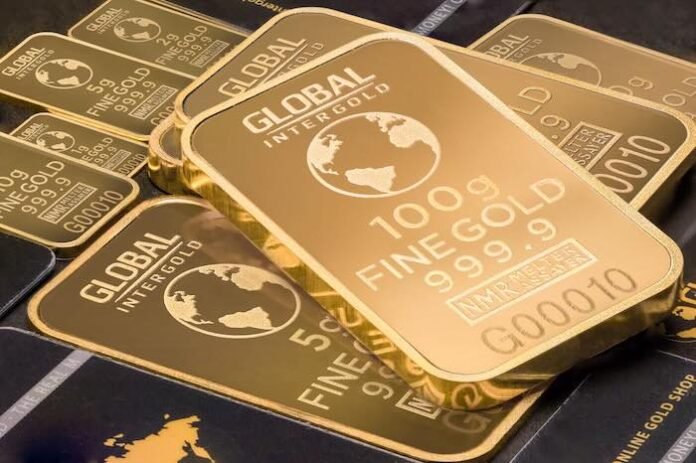In the summer of 1944, as the Second World War drew to a close, representatives from 44 allied nations, including the United States, the United Kingdom, France, China, Canada, and Australia, as well as many others, met in the resort town of Bretton Woods, New Hampshire, to establish a new world economic order.
Their goals were ambitious. They intended to create a new international monetary system to promote global economic stability, as well as cooperation between world powers in the aftermath of such a destructive conflict. Against long odds, multiple broad-sweeping treaties were reached, and several powerful new global institutions were created—among them, the International Monetary Fund and the World Bank.
But the crowning achievement of the Bretton Woods Agreement (shorthand for the slew of accords that were made during that three-day conference) was the establishment of the US dollar as the world’s reserve currency. According to the agreement, all major currencies would thenceforth be tied to the dollar, which in turn was to be pegged to gold at a fixed rate of $35 per ounce. This was intended to create a new sense of consistency in international trade by reducing exchange rate volatility.
Since then, the US dollar has served as the world’s primary reserve currency, widely used in international trade and finance. Central banks across the planet have held significant stockpiles of US dollars as part of their foreign exchange reserves, reflecting confidence in the economic power of the United States.
But as we prepare to enter the 81st year of this ubiquitous and overarching economic status quo, there are learned financial professionals who are quick to point out that the Bretton Woods Agreement was predicated on linking the US dollar to gold—a practice that was stopped in the early 1970s.
One such professional is Alexander Spellane, founder and CEO of Fisher Capital Group, a premier precious metals investment firm in California.
“The Bretton Woods Agreement accomplished many great things, including the implementation of a stable monetary framework and fostering international cooperation, which has helped to reinforce worldwide economic security and kept the general peace for most of living memory,” says Spellane. “But the de-coupling of the dollar from the gold standard removed the single largest factor in the agreement that guaranteed stability, fundamentally undermining its credibility.”
Also Read: Two crucial steps towards financial stability
Spellane argues that the move away from the gold standard led to a system where currencies could be printed without restraint. This, he warns, risks inflation and can lead to a large-scale erosion in the public’s trust in monetary systems. “Gold has a unique ability to maintain its value over time,” he explains. Unlike fiat currencies, which can be created at will, gold is a finite resource. This scarcity is what gives it intrinsic value and makes it the ultimate hedge against inflation. And that’s also why it was the world’s de facto reserve currency until 1944.”
Indeed, to this day, many central banks still hold substantial gold reserves, which Alexander Spellane sees as a sign of the yellow metal’s lasting importance. “Countries know that in times of uncertainty, gold is a haven,” he notes. “It acts as a stabilizing force in a world where currencies can fluctuate wildly.”
According to Spellane and the other experts at Fisher Capital Group, gold is not just a relic of the past; it remains a crucial asset in modern finance. “Even today, we see gold being used as a reserve asset by countries looking to genuinely safeguard their wealth,” he says. “Gold’s status as the world’s true reserve currency is evident when we see how nations react to economic crises. They often turn to gold because it’s tangible and historically trusted.”
While the American dollar may dominate the financial landscape, Spellane believes that gold’s value will only become more pronounced in the coming years. “As we face geopolitical tensions and economic uncertainty, the world will likely see a resurgence in gold as a reserve asset,” he predicts. “In times of crisis, people and governments instinctively return to what has historically been seen as money: gold.”
The CEO of Fisher Capital Group emphasizes that gold should not only be viewed through the lens of investment but as a fundamental component of financial security. “Gold provides a form of economic insurance,” he asserts. “It is a tangible asset that can be relied upon when currencies fail or when inflation threatens to degrade purchasing power. It’s not really about whether gold is recognized as the official reserve currency; it’s about its enduring role as the safest store of value.”
It’s a compelling case. And even if gold is not recognized as the world’s de jure reserve currency right now, the lessons of history, when combined with current economic realities, suggest that it may fulfill that role once again at some point in the future. After all, it’s only been 80 years since the Bretton Woods Agreement, and 80 years is a mere blink of an eye in the long tapestry of human history.

